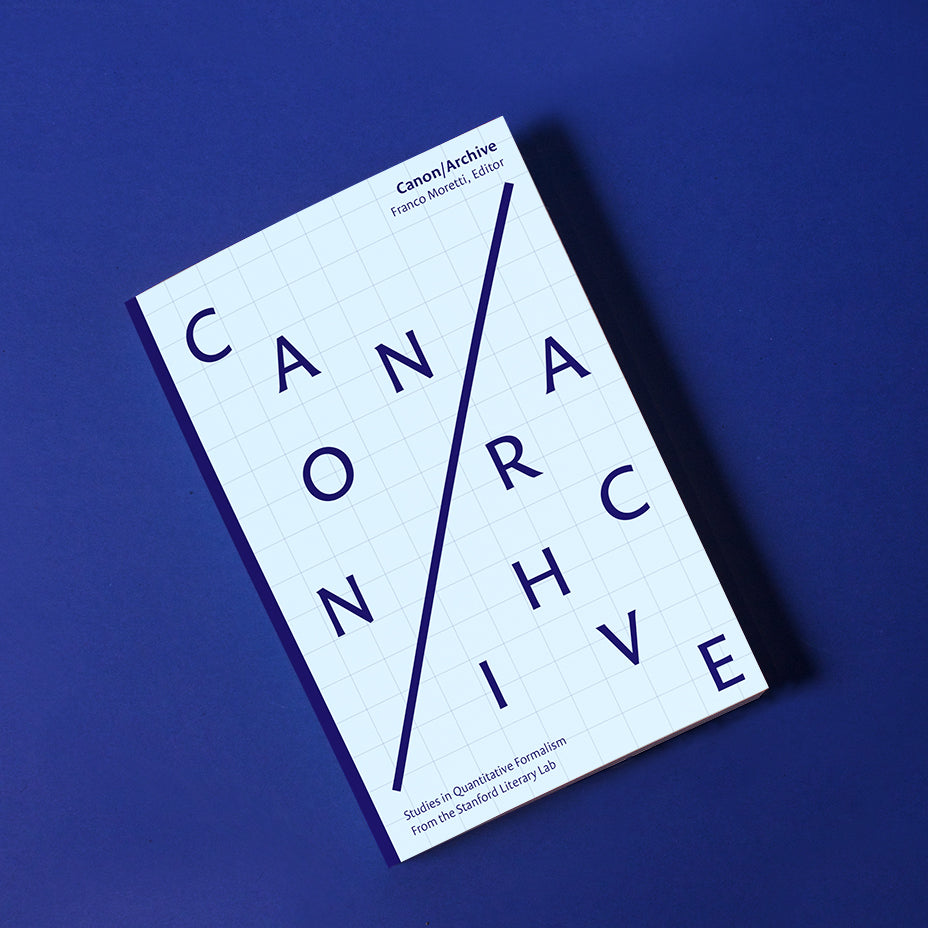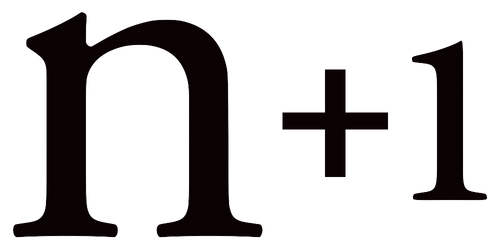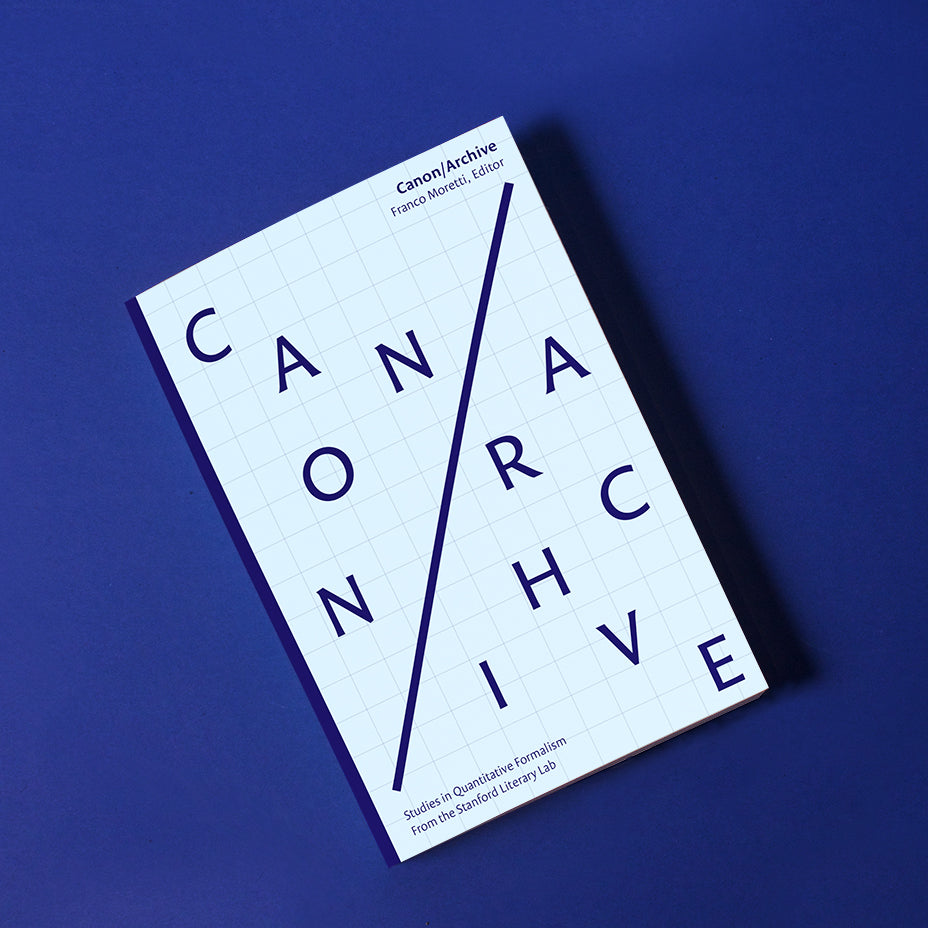Canon/Archive: Studies in Quantitative Formalism
Couldn't load pickup availability
“Full of witty asides and suspenseful first-person narration that acknowledges surprises, dead-ends and the collaborative, experimental nature of the lab’s work. . . . Even modest-seeming results . . . unsettle established ideas of literary history.”
—Jennifer Schuessler, New York Times
For the past seven years, the Stanford Literary Lab, founded by Franco Moretti and Matthew Jockers, has been a leading site of literary scholarship aided by computers and algorithmic methods. This landmark volume gathers the collective research of the group and its most remarkable experiments. From seemingly ineffable matters such as the “loudness” of thousands of novels, the geographic distribution of emotions, the nature of a sentence and a paragraph, and the evolution of bureaucratic doublespeak, descriptions emerge. The Stanford Literary Lab lets the computers provide new insights for questions from the deep tradition of two centuries of literary inquiry. Rather than, like the rest of us, letting the computers lead.
The results are adventurous, witty, challenging, profound. The old questions can finally get new answers—as the prelude to new big questions. Canon/Archive is the fulfillment and further development of “distant reading,” adding a rare, full-length monument to the piecemeal progress of the digital humanities. No student, teacher, or inquisitive reader of literature will want to be without this book—just as no one interested in the new data-attentive methods in history, criticism, and the social sciences can afford to evade its summons.
ISBN: 978-0-9970318-7-4
“Canon/Archive embodies a new mode of thought . . . It is an important book of literary criticism, likely as important as any published this year.”
—Bill Benzon, 3 Quarks Daily
“With scores of graphs and tables, Canon/Archive looks like a collection of scientific papers. And yet, the suspenseful narratives that link the graphs don’t sound at all like (modern) science . . . This book offers new, consequential arguments about topics that have long been central to literary study: the nature of genre, the history of the novel, the stylistic strategies that make some writers more prominent than others . . . It has been clear for several decades that quantitative methods could produce real discoveries about literary history; this volume also proves that those discoveries can be communicated in a lively, suspenseful way.”
—Ted Underwood, Public Books
“Franco Moretti’s work has helped to make ‘computational criticism,’ and the digital humanities more generally, into a real intellectual movement . . . securing a permanent seat at the table for a new critical paradigm—something that happens only rarely.”
—Joshua Rothman, New Yorker
“The Literary Lab tackles literary problems by scientific means: hypothesis-testing, computational modeling, quantitative analysis. . . . For the Literary Lab, [evidence] suggests that there are formal aspects of literature that people, unaided, cannot detect.”
—Kathryn Schulz, New York Times Book Review
“The experience of reading Moretti is never less than exhilarating. No one conveys better the sheer fun of literary research, or invests the discipline with such an air of discovery and possibility.”
—James English, Los Angeles Review of Books


